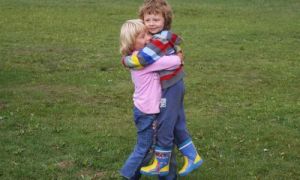

In the NSW and VIC early childhood sector, safeguarding children and ensuring accountability in service operations are paramount. But what happens when a complaint—particularly one involving alleged harm to a child—is investigated by the Department of Education and deemed “inconclusive,” with no breach of law or regulation found? Can that decision be contested, and if so, how?
This article outlines the formal pathways available to services and individuals in NSW and VIC who seek to challenge departmental decisions, especially in cases where child safety concerns remain unresolved.
“I was watching the rain because it made me feel calm. I didn’t want to talk; I just wanted to listen to the drops.” This simple statement carries more than imagination—it holds intention, emotion, and agency.
This article is a call to shift the lens. To move from about to by. From adult narration to child-led storytelling. Because when children speak, they don’t just describe—they reveal.
In early childhood services across Australia, educators are often expected to stay beyond their rostered hours to complete tasks—cleaning, documentation, ratio coverage, or closing duties. But when this extra time goes unpaid, it’s not just unfair—it may be unlawful.
In early childhood education, two terms often surface in compliance conversations: active supervision and in ratio. While both are essential to child safety and regulatory integrity, they serve distinct purposes—and conflating them can lead to serious oversights in practice. Let’s unpack each concept, then explore how they play out in real-world settings.
A: Legally, yes—an educator is considered “in ratio” as long as they are physically present and supervising the required number of children according to the age-based ratios set by the National Quality Framework (NQF). But practically? That’s where the system starts to unravel.
With new child safety regulations having just come into effect, here’s a sector-responsive list of Quality Improvement Plan (QIP) priorities that services across Australia should consider updating immediately. These priorities align with the National Quality Standard (NQS), recent regulatory changes, and sector best practice.
In early childhood settings, food safety isn’t just a regulatory checkbox—it’s a daily responsibility tied to children’s wellbeing. Whether you're preparing snacks, managing mealtimes, or supporting nutrition education, having a valid food handling certificate is essential. This guide consolidates the most widely recommended options from sector peers across Australia, saving you time and stress.
In early childhood education across Australia, the question of whether educators can refuse to work alone is no longer hypothetical—it’s urgent. With rising behavioural complexities, mounting workloads, and increasing safety concerns, educators are asking, "Do I have the right to say no?" The answer is layered, but powerful: Yes, you do have a leg to stand on. And it’s time we stood together.
Father’s Day offers a chance to celebrate love, care, and connection—but for children without fathers, it can also be a sensitive time. In early childhood settings, educators have a responsibility to ensure that celebrations are inclusive, emotionally safe, and reflective of diverse family structures.
Across the early childhood education and care sector, educators are sounding the alarm: current staffing ratios are insufficient to deliver safe, meaningful, and developmentally appropriate care. While recent reforms have focused on mobile phone bans and child safety protocols, many in the sector argue that these measures overlook a deeper structural issue—chronic understaffing driven by profit-based ratio models.
 Toddlers have a greater understanding of the world around them by this stage. Their cognitive development (also known as intellectual development and thinking skills) continues… Read More
Toddlers have a greater understanding of the world around them by this stage. Their cognitive development (also known as intellectual development and thinking skills) continues… Read More
 Infants begin to develop trust when parents begin to fulfil their needs. Such as changing an infant's nappy when needed, feeding on request and holding… Read More
Infants begin to develop trust when parents begin to fulfil their needs. Such as changing an infant's nappy when needed, feeding on request and holding… Read More
 Beginning at birth the construction of thought processes, such as memory, problem solving, exploration of objects etc, is an important part of an infant’s cognitive… Read More
Beginning at birth the construction of thought processes, such as memory, problem solving, exploration of objects etc, is an important part of an infant’s cognitive… Read More
 Toddlers want to do more on their own and do not like it when you begin to establish limits on their behaviour. Tantrums can become… Read More
Toddlers want to do more on their own and do not like it when you begin to establish limits on their behaviour. Tantrums can become… Read More
 Your preschooler is now able to focus their attention more accurately and is less influenced by distractions. The intensity of questions increase as your child… Read More
Your preschooler is now able to focus their attention more accurately and is less influenced by distractions. The intensity of questions increase as your child… Read More
 John Dewey is often seen as the proponent of learning by doing – rather than learning by passively receiving. He believed that each child was active,… Read More
John Dewey is often seen as the proponent of learning by doing – rather than learning by passively receiving. He believed that each child was active,… Read More
 Toddler advance and gains new skills in Gross Motor Development milestones achieved throughout earlier years. Co-ordination and challenges that could not be performed before such… Read More
Toddler advance and gains new skills in Gross Motor Development milestones achieved throughout earlier years. Co-ordination and challenges that could not be performed before such… Read More
 Erik Erikson developed a psychosocial theory to understand how we each develop our identities through eight stages of psychosocial development from infancy to adulthood. The… Read More
Erik Erikson developed a psychosocial theory to understand how we each develop our identities through eight stages of psychosocial development from infancy to adulthood. The… Read More
 At this point preschoolers begin to interact effectively with others. Play becomes more innovative and organized and “boyfriend” or “girlfriend” begins to emerge. Preschoolers have… Read More
At this point preschoolers begin to interact effectively with others. Play becomes more innovative and organized and “boyfriend” or “girlfriend” begins to emerge. Preschoolers have… Read More
 From now, babies begin to identify and respond to their own feelings, understanding other's feelings & needs and interact positively with others. A baby's social and… Read More
From now, babies begin to identify and respond to their own feelings, understanding other's feelings & needs and interact positively with others. A baby's social and… Read More

As Educators when communicating with Parents (through verbal or non-verbal communication), there will be times...
See more...
At this point preschoolers begin to interact effectively with others. Play becomes more innovative and...
See more...
A calm down box has a variety of sensory tools that a child is encouraged...
See more...© 2009-2025 Aussie Childcare Network Pty Ltd. All Rights Reserved.

